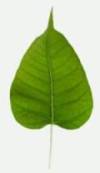
Welcome to the ezine produced by SGI Buddhists that prompts the positive, kindles the constructive, highlights the hopeful and leaves you feeling - well, up!

 It’s interesting to observe how often the media reports one health alert telling us to avoid something, while a few days later, we hear that the food or activity to be avoided could also be good for our health, writes Louise Ellis.
It’s interesting to observe how often the media reports one health alert telling us to avoid something, while a few days later, we hear that the food or activity to be avoided could also be good for our health, writes Louise Ellis.
The latest issue is over the sun, skin cancer, and Vitamin D deficiency. Recent reports show a dramatic increase in the incidence of malignant melanoma, a particularly dangerous form of skin cancer with a high rate of fatality. However, at the same time, a number of new research projects have proven the vital importance of Vitamin D, an essential nutrient produced in the body from the sun’s ultraviolet rays absorbed by the skin.
How should we deal with this, and other lifestyle dilemmas?
Some experts say that 60% of us are Vitamin D deficient, and this could cause all sorts of health problems. For years scientists have known that vitamin D deficiency increases the risk of bone problems such as osteoporosis and rickets. But more recently links have been made with a long list of illnesses, including bowel cancer, breast cancer, diabetes, heart disease, joint disease, multiple sclerosis, dementia, birth difficulties and autism.
I recently watched a really interesting series on BBC2, The Incredible Human Journey, which charted the migration of early humans out of
So the dilemma facing us all now is how to get enough Vitamin D, without risking the chance of developing skin cancer?
When I was working as a producer on a TV series dedicated to health, I noticed this type of question being posed on a number of issues. One week we received a press release from a university research team confirming that coffee was definitely bad for you, as it can cause dehydration, increased heart rate and high blood pressure. Then a couple of weeks later, another press release from another university said that a cup of coffee in the morning was good for you, because as a mild stimulant, it made people feel more alert, more able to concentrate on tasks, less accident prone, and actually happier as it staved off any of those morning depressive feelings. It was also linked to a lower incidence of diabetes and colon cancer.
Recently, similar dilemmas have been prompted by reports on alcohol. A study by the Million Women project showed that even one drink a week could increase one’s chances of developing certain cancers. While another famous study has shown that red wine is good for the heart.
So who should we believe?
It's not surprising that a recent
 Central to the philosophy of Buddhism is the concept of the
Central to the philosophy of Buddhism is the concept of the
We all have a unique genetic makeup, and we also each have a different lifestyle depending on innumerable factors, such as our age, gender, job, family, diet preferences and fitness. One of the most important things we can do is to listen to our own bodies and minds, and to identify what factors lead us to feel stress or develop disease.
I see myself as an example of this: I have always been fairly healthy. I enjoy eating organic food, and have always loved fruit and vegetables, plus I regularly exercise. I like the occasional glass of alcohol, and have never really smoked. So, it’s unlikely that I will suffer certain illnesses linked to diet and smoking. However, as someone with pale skin, I did develop skin cancer a few years ago, which I have had treated successfully. I wrote about my experience of this in My Healing Journey on This Way Up. So now the area of my lifestyle which I need to be careful with is sun exposure, and making sure I wear sun protection cream. It is fairly unlikely that I am Vitamin D deficient, due to the lack of pigment in my skin, but there are several foods which I can include in my diet to boost my levels of Vitamin D.
If you would like to read more about the latest sun, skin cancer and Vitamin D scare, and how to get more Vitamin D through food sources such as oily fish, CLICK HERE.

